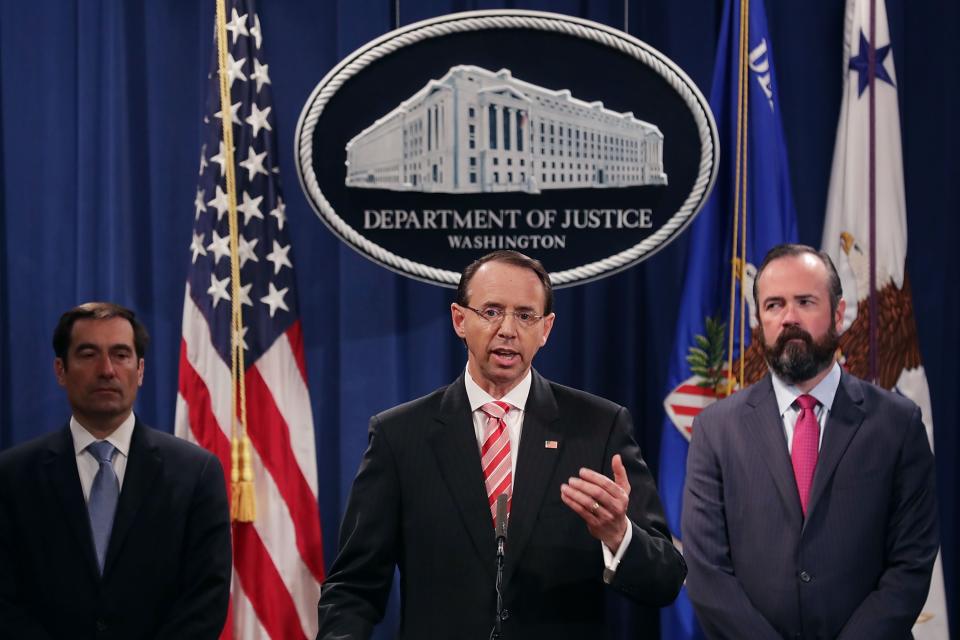Deputy Attorney General Rod Rosenstein expected to leave Justice Department after Senate confirms William Barr
Deputy Attorney General Rod Rosenstein, who oversees the special investigation into the 2016 election, is expected to leave his post in a matter of weeks, a person familiar with the matter said Wednesday.
The move is timed to the anticipated confirmation of William Barr, who was nominated to succeed ousted Attorney General Jeff Sessions.
The person familiar with the transition said Rosenstein is leaving on his own terms.
Senate confirmation hearings for William Barr, President Donald Trump's attorney general nominee, are scheduled to start Jan. 15, and a vote could follow in the coming weeks.

Rosenstein's expected departure would come after a tumultuous 20 months, in which he has often been placed at odds with the administration he works for and Trump himself.
Since his appointment of Robert Mueller to lead the Justice Department’s investigation of Russia’s interference in the 2016 election, Rosenstein has been the target of unrelenting criticism from Trump, who has derided the inquiry as a witch hunt.
During that time, Rosenstein has been seen as a key shield for Mueller as Trump and some Republican lawmakers have openly mulled removing both Rosenstein and Mueller.
Rosenstein’s appointment of Mueller was prompted by Sessions’ recusal from the inquiry because of his work for the Trump campaign, an action that ultimately led to Sessions’ firing following the November mid-term elections.
If confirmed, Barr would assume management of the Mueller investigation, widely believed to be in its final stages.
Last year, a New York Times story reported Rosenstein had suggested invoking the 25th Amendment last year to remove President Donald Trump.
Rosenstein has strongly denied the story, which said that he suggested recording Trump's conversations and possibly invoking the amendment that would trigger Trump's removal from office.
Rosenstein had been a career attorney at Justice before taking the No. 2 post in April 2017. He joined the department in 1990 through the attorney general’s honors program.
During independent counsel Kenneth Starr’s investigation of President Bill Clinton, Rosenstein helped convict three onetime associates of the Clintons – Susan McDougal, James McDougal and former Arkansas Gov. Jim Guy Tucker – on fraud and conspiracy charges in May 1996.
Rosenstein became an assistant U.S. attorney in Maryland, prosecuting District Court cases and arguing appeals at the 4th U.S. Circuit Court of Appeals. He served four years in the Justice Department’s tax division.
He then served 12 years as U.S. Attorney for Maryland before becoming beginning his stint as deputy attorney general.
This article originally appeared on USA TODAY: Deputy Attorney General Rod Rosenstein expected to leave Justice Department after Senate confirms William Barr

